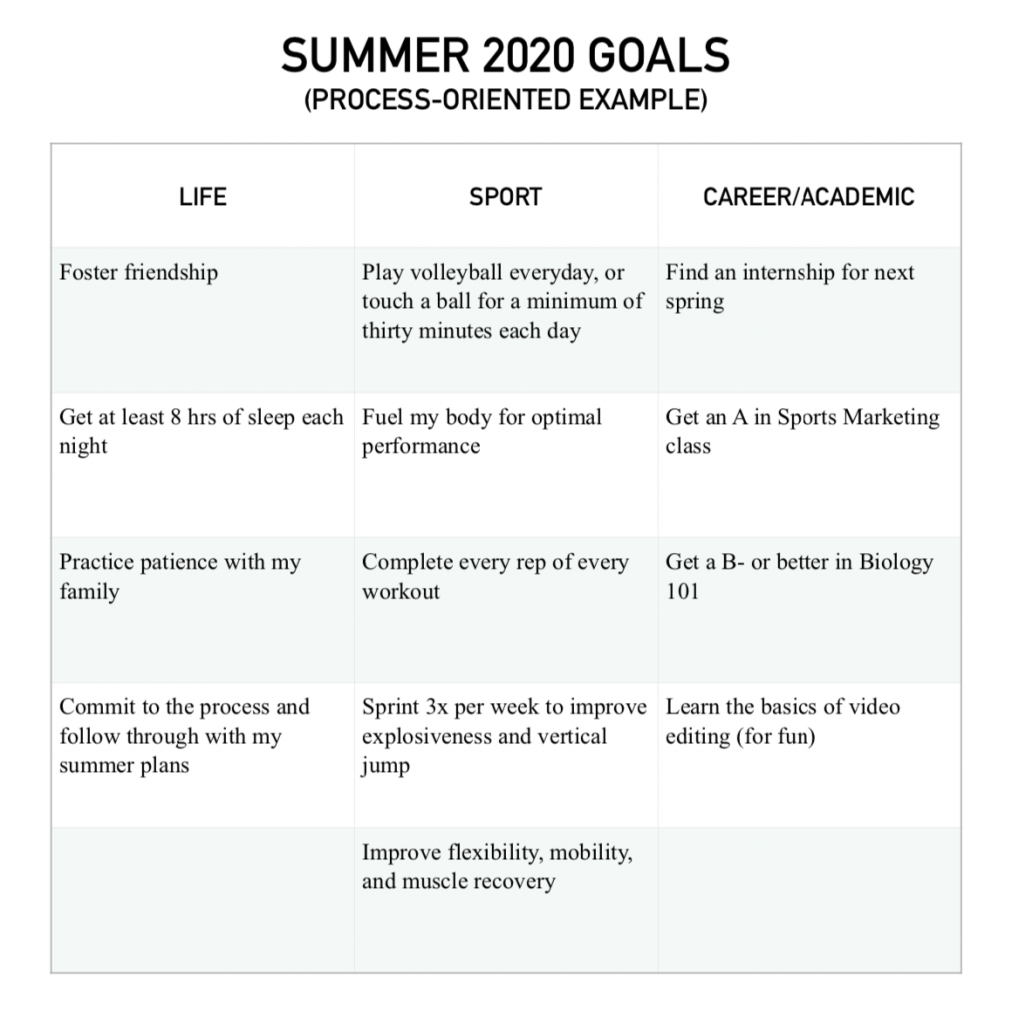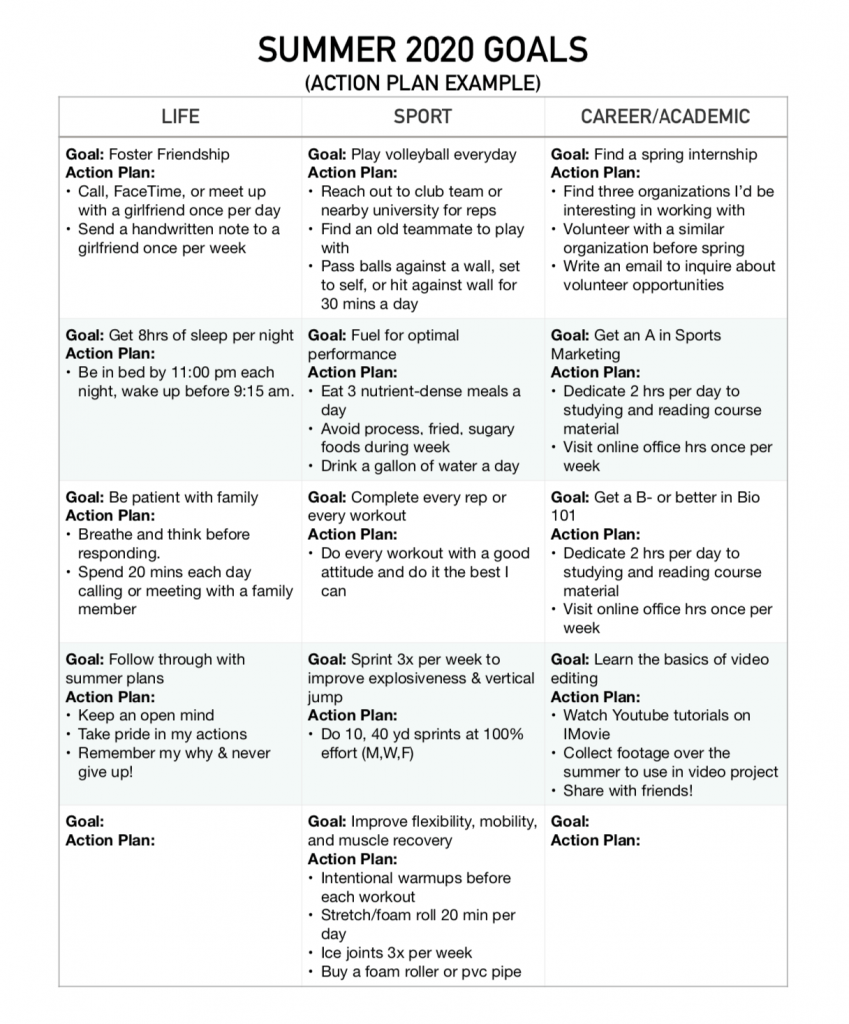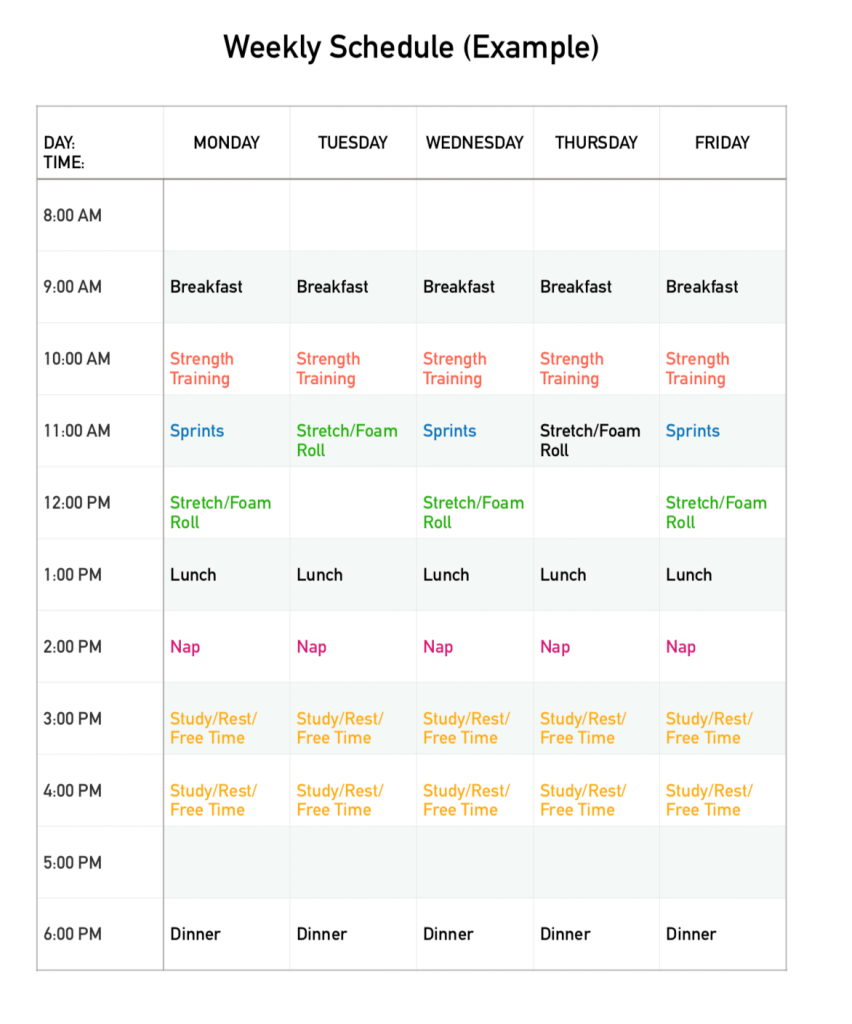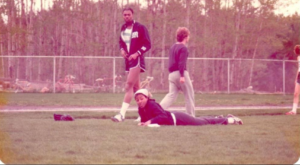Summer is here and many of us are stuck at home without the normal structure that sport has provided for us in the past. While Covid-19 has sidelined many student-athletes from engaging in group activities, there are plenty of ways to further your development as an athlete, and a person, over the next three months.
In this article, you will find a step-by-step guide that will help you leverage your extra time to make this summer your most productive one yet. I used a similar template the summer before I received All-American nods from the NCAA and earned my highest Grade Point Average in a semester. Needless to say, having structure helps.
If you’re a student-athlete who needs help planning your at-home summer, you can email info@viragoproject.org or send a direct message to @theviragoproject on Instagram. You can also download our free goal-setting worksheets and weekly schedule HERE.
As always, feel free to share this post with your friends, coaches, and anyone else who’d benefit from reading it.
Step 1: Think Big
Before we get to the goal setting, action planning, and execution bits of this mini-lesson, you need to take some time to think about the bigger picture.
Who do you want to be? Where are you now and where do you want to be next year? How about three years from now? Your big picture goals don’t need to be fully developed right away and many times, those goals will change over the years. But having some vision for what you want your future to be will help you take purpose-driven steps towards finding success.
Here’s what my big-picture goals looked like when I was a student-athlete at UNC Chapel Hill:
- I want to play professional volleyball
- I want to be an All-American
- I want to be a business owner someday
- I want to work in sport
Write down your big-picture goals on a blank sheet of paper, or use our free goal-setting printout HERE.
Step 2: Set Small Process-Oriented Goals
It’s time to start brainstorming what you want to get out of your summer.
Remember your big-picture goals and think about process-oriented steps you can take to help you achieve them. As a student-athlete, I broke down my summer goals into three different categories: Sport, Life, and Career. I HIGHLY recommend breaking down your goals into different categories. Doing so will keep you organized and help you stay on track.
Here’s an example:

You can write down your process-oriented goals on a blank sheet of paper, or you can use our free goal-setting printout HERE.
Step 3: Create An Action Plan
Now that you know your goals it’s time to write an action plan.
Some goals are self-explanatory and don’t need further elaboration. Other goals require you to think about what needs to be done to reach them. Having a plan increases your chances of success and enables you to move forward with a clear mind.
Similar to your goals, your plan of action should be realistic. Be honest with yourself while making your plan. Doing too much will cause you to burn out, but not doing enough will delay the results you’re looking for. You know your capabilities and limitations better than anyone else. Find a way to challenge yourself in a sustainable manner.
Here’s an example:

You can write down your action plan on a blank sheet of paper, or you can download our free goal-setting printout HERE.
Step 4: Make A Daily Schedule
Congratulations!
The hard part is over and it’s time to put your plan into action. Having a visible schedule to refer to each day is KEY to following through on your goals. When I was in college, I mostly used a standard notebook planner to help me keep track of my commitments.
If you don’t have access to a planner you can download and print our free weekly planner HERE.
Here’s an example:

Step 5: Commit To The Process
As athletes, we pride ourselves on “giving it our all”. Wins and losses aren’t everything. As long as you give 100%, you can walk away from anything with your head held high.
The same principle can be applied when you are setting personal goals. Reaching your goals is not an overnight endeavor. It takes time and there will be many opportunities for you to become distracted or give up. You may not achieve everything you set out to do, but following through on your commitments is an honorable way to live. It fills your life with purpose and enables you to transform into something greater.
Never forget that the process is immeasurably more important than the result. Remember this when you are faced with setbacks or feel discouraged in your journey.



